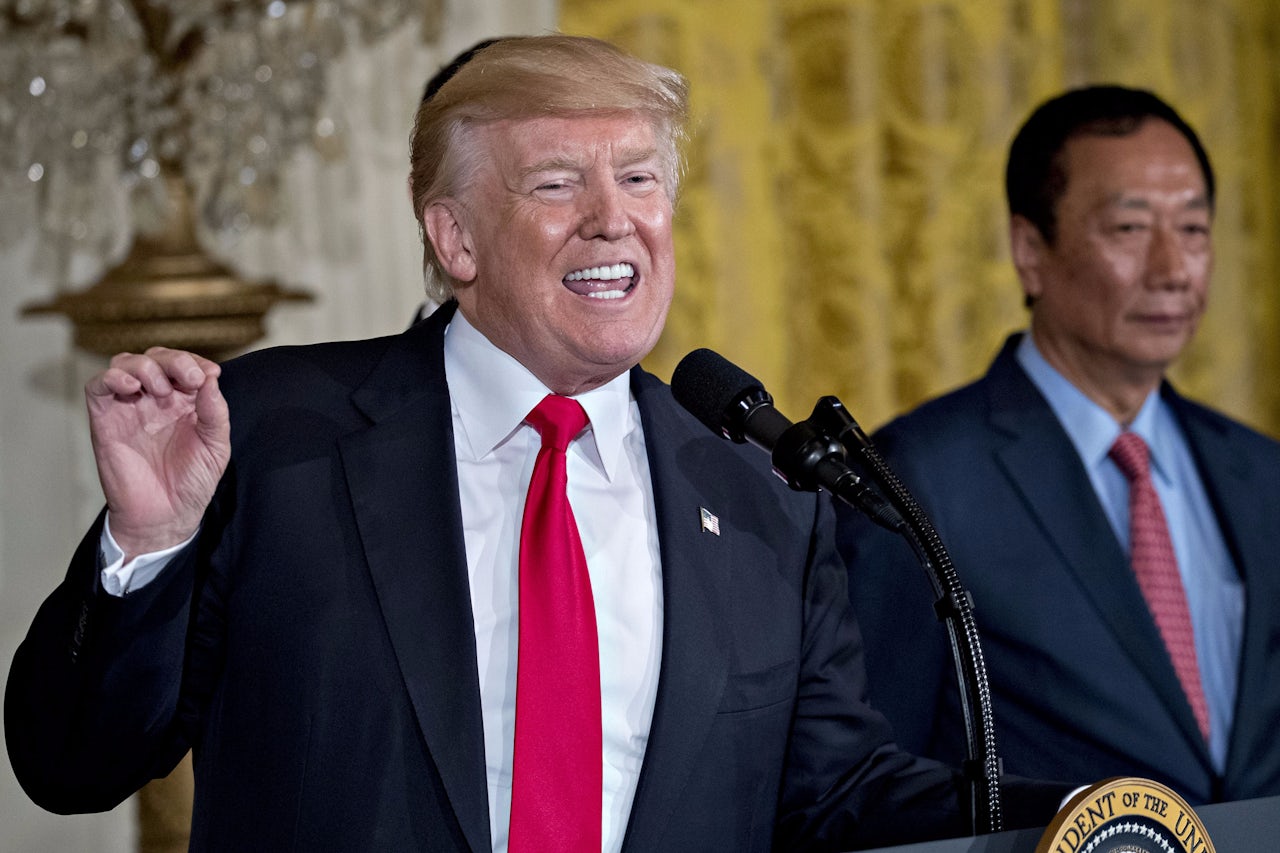When President Donald Trump announced without warning Wednesday morning that he was banning transgender people from serving in the military “in any capacity,” the news exploded across the country. Outrage and support came in from their predictable respective political quarters. “Rank discrimination,” said the ACLU. “A no-brainer,” countered The Federalist’s Mollie Hemingway.
Like any bully, the president sees a weak element of society and targets it. The president’s tweets were aimed at both pursuing political goals and at motivating the Republican president’s most vocal and extreme supporters by targeting an attack on a marginalized group of Americans.
It’s the transgender community today, but Trump’s other main targets for repression thus far have included the undocumented and Muslim communities in America. What the three groups have in common is political underrepresentation in America. A lack of power and social stigma presents an easy target to the president and his party for furthering their political goals.
Like any bully, Trump sees a weak element of society and targets it.
The GOP learned their lesson from the 2004 presidential election when the party used gay marriage as a wedge issue: you can gain political power by fighting against progress as long as possible and feeding off of the discontent of those who fear change. That is, of course, the plan — and evidenced from the reaction, it might work. But it's also a plan that may backfire as attitudes around trans rights are changing in America.
From the minute he announced it, Trump’s new decree was a disaster. Despite claiming he consulted with “generals and military experts,” the Pentagon was “blindsided” by the morning's tweets and directed calls for comment to the White House. Obama-era Defense Secretary Ash Carter's 2016 order allowing transgender soldiers to serve openly in the armed forces remained on the DoD website as of early Wednesday afternoon. It's hard to gauge what the president's statements even mean in the context of actual policy.
Perhaps sensing the confusion (and the increasingly bad optics), by the afternoon the Republican Party was framing the issue as one related to taxpayer dollars and not the specific group that would be affected by the change. POLITICO reported that the president's decision was made so recalcitrant members of his party would support his border wall in exchange for ending funding for medical procedures for trans soldiers.
“This isn’t about the transgender issue,” Rep. Robert Aderholt, R-Alabama, told the site, “it’s about the taxpayer dollars going to pay for the surgery out of the defense budget.”
The actual money that will be saved is negligible. Trump's claim of “tremendous medical costs” has been criticized. According to a Rand Corporation study from 2016, gender related medical procedures would only “increase by between $2.4 million and $8.4 million annually, representing a 0.04- to 0.13-percent increase” in Tricare costs.
An anonymous Trump administration official put the motivation for the president's statement into the proper political context. It's less about the actual meaning of the military's policy toward transgender service members, the official told Axios on Wednesday, than about the potential for victory in the midterm elections.
“This forces Democrats in Rust Belt states like Ohio, Michigan, and Wisconsin, to take complete ownership of this issue,” the official said. “How will the blue collar voters in these states respond when senators up for re-election in 2018 like Debbie Stabenow are forced to make their opposition to this a key plank of their campaigns?”
Trump may be mortgaging the future of the party for his own short-term gain.
It's a perfectly prefabricated culture war battle in advance of the midterm elections. Yet there is evidence that this latest attempt by Trump to rev up the base for 2018 and change the subject from the constant negative stories surrounding his young presidency may fail. Though trans people in the U.S. still face an uphill battle for equal rights, polling from over the last year indicates Americans are becoming more comfortable with their fellow citizens whose gender identities fall under the trans umbrella.
Political power can turn on a dime. The GOP has already lost younger voters for the party's stance on gay marriage.
We talked to Eoin Higgins about this story on our daily podcast, The Outline World Dispatch. Subscribe on Apple Podcasts or wherever you listen.
The more savvy Republican lawmakers understand that. Members of the GOP caucus in both chambers of Congress have been slow to comment with explicit support for the new policy — by contrast, a handful of GOP members of Congress have already expressed opposition to one degree or another.
The long term political gain from this shift in policy is unknown. It may be mortgaging the future of the party for his own short-term gain. That's cold comfort to the oppressed. But even so, it's too early to celebrate another failure from the president. Trump's political epitaph — and the political epitaph of the Republican Party — has been written so many times it's worn through the headstone.

